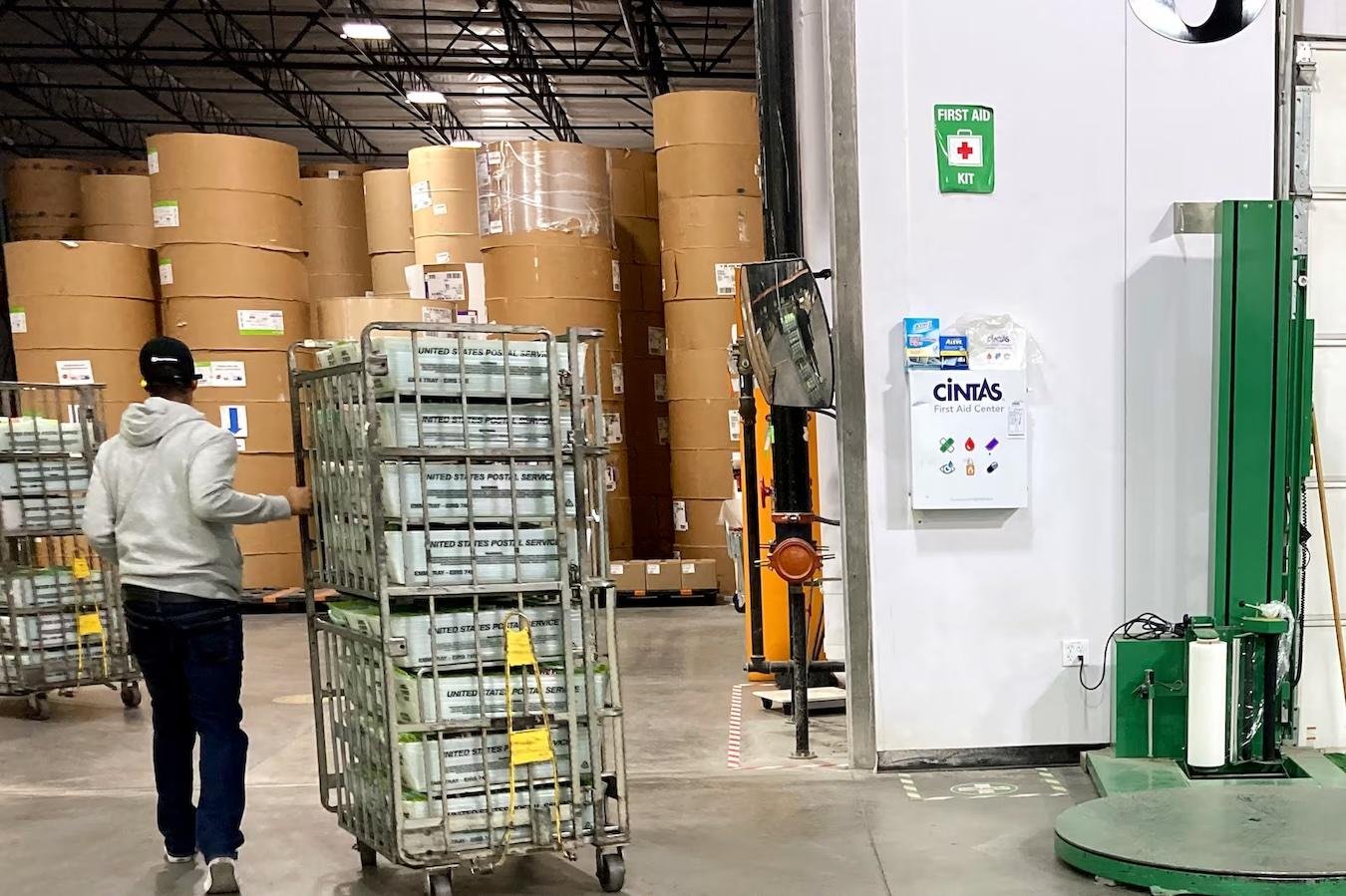Business
Skeptics Spotlight Sponsor’s Ties to Key Vendor in Controversial Az Ballot Security Bill

Arizona Republican lawmakers are once again pushing for legislation that mandates security features on the state’s ballot paper. Leading the charge is State Sen. Mark Finchem, whose proposed bill, SB1123, outlines specific security measures—such as holograms, barcodes, and watermarks—that he asserts will ensure the integrity of ballots in Arizona’s elections.
Finchem has attempted similar initiatives in the past. During 2022, the state attempted to implement these requirements through a pilot program, but the endeavor was ultimately abandoned due to concerns about conflicts of interest. A subsequent investigation by Votebeat revealed that the proposal favored a single vendor, Authentix, a company linked to Finchem via a nonprofit he once led. The pilot program’s setup raised eyebrows, especially since Cochise County Recorder David Stevens, a close associate of Finchem, was the only official to apply for it.
Amid backlash, Cochise County officials decided to halt a contract with Authentix following the investigation’s findings. Finchem’s current bill echoes the earlier proposal, specifying 10 security features that Arizona ballots would need to incorporate, but with slight changes in wording. Importantly, it mandates at least three of these features on each ballot.
The detailed product descriptions in the bill closely resemble offerings from Authentix, which specializes in anti-counterfeiting technologies. However, some features listed may not be suitable or widely used in U.S. elections, such as “secure holographic foil,” which could obstruct ballot reading by tabulators.
Runbeck Election Services, a Phoenix-based ballot vendor, reported to Votebeat that it can provide similar features to some of those specified in Finchem’s bill.
During a January 29 meeting of the Committee on Judiciary and Elections, Democratic state Sen. Lauren Kuby questioned Finchem about potential conflicts of interest, citing the Votebeat investigation. She pointed out the connections between Finchem and Authentix, asking, “Authentix has ties to you, correct, and it might be the only vendor that can supply this paper?”
In response, Finchem dismissed her concerns as a “red herring,” asserting that while he is familiar with some individuals, there is no financial interest involved. He maintained that other companies could also meet the requirements outlined in his bill, though he did not specify who those companies might be.
The committee voted along party lines to advance the bill. However, its fate may be uncertain if it reaches the desk of Democratic Gov. Katie Hobbs, as she may require support from some Democratic lawmakers to approve it.
Notably, Finchem has previously made unsubstantiated claims about fake ballots being inserted into the 2020 election. His assertions overlook robust verification processes, including continuous camera surveillance and bipartisan oversight during ballot handling, as well as established auditing protocols.
After Cochise County scrapped the Authentix pilot, Runbeck assisted in testing alternative security features, which included invisible fibers and UV indicators. Results indicated that these security elements could be effectively tabulated without issues, with estimated additional costs ranging from 10 to 15 cents per ballot. In stark contrast, Authentix projected a cost of $2.75 per ballot, potentially escalating statewide ballot-related expenses by $10 million.
Kuby expressed conditional support for measures like a watermark if proven cost-effective and aligned with best practices. However, she expressed significant concerns about the current version of the bill, identifying several potential issues that need addressing.
This article was originally published by Votebeat, a nonprofit organization focused on local election administration and voting accessibility.






![Members of the Arizona State Transportation Board sit on the dais in Surprise City Hall on Feb. 21, 2025. [Nancy Smith]](https://arizonanews.org/wp-content/uploads/2025/02/Surprise-Meeting-Reveals-One-Key-Barrier-Keeping-347-Off-ADOTs-400x240.jpg)
![Members of the Arizona State Transportation Board sit on the dais in Surprise City Hall on Feb. 21, 2025. [Nancy Smith]](https://arizonanews.org/wp-content/uploads/2025/02/Surprise-Meeting-Reveals-One-Key-Barrier-Keeping-347-Off-ADOTs-80x80.jpg)










